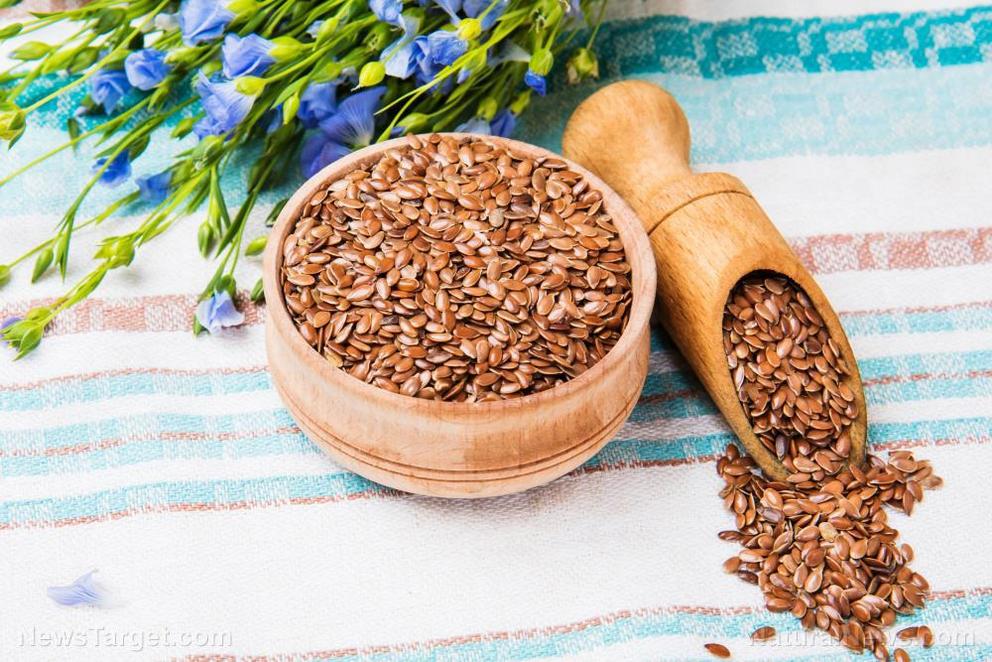Flaxseeds can help you lose weight: here’s how
Flaxseed is a popular superfood because it’s fiber-rich and can help improve your cholesterol levels. According to the results of an animal study, flaxseed can also be used to promote weight loss naturally.
The study was published in the American Journal of Physiology: Endocrinology and Metabolism. It was a collaboration between researchers from the University of Copenhagen in Denmark and the University of Gothenburg in Sweden.
What is flaxseed?
Flaxseed is one of the oldest crops on Earth and comes in two types: brown and golden. Both types offer many health benefits. The usual serving size for ground flaxseeds is one tablespoon (seven grams).
A tablespoon of flaxseeds contains fiber, omega-3 fatty acids, and protein, as well as vitamins and minerals, such as:
- Vitamin B1 (eight percent of the Recommended Daily Intake [RDI])
- Vitamin B6 (two percent of the RDI)
- Calcium (two percent of the RDI)
- Iron (two percent of the RDI)
- Folate (two percent of the RDI)
- Magnesium (two percent of the RDI)
- Phosphorus (four percent of the RDI)
- Potassium (two percent of the RDI)
Flaxseeds’ health benefits are often attributed to the fiber, lignans, and omega-3 fatty acids they contain.
Flaxseed and its impact on obesity markers
In the study, researchers found that adding flaxseeds to your diet can help you manage cholesterol and fight inflammation.
They also reported that flaxseed fibers are fermented in the gut and alter the gastrointestinal microbiota. This event can positively influence metabolic health and also protect against obesity, especially when an individual is following a high-fat diet.
In the study, the researchers identified gut microbiota as an important factor that regulates both adiposity and glucose tolerance in mice and humans. They added that diet is one of the major factors that influence gut microbiota. The researchers also shared that changing the composition of the gut microbiota by making healthy dietary changes can naturally improve metabolism.
In general, the breakdown of dietary fiber is linked to beneficial changes in the gut microbiome; however, the researchers noted that there is a lack of understanding on how flaxseed fiber, specifically, changes health after it is fermented in the gut.
To fill in this gap, the scientists used mice for their experiment and split them into four groups. They assigned different types of diet to each:
- A standard diet with 4.6 percent soy-derived fiber, or the “control diet”
- A high-fat, no fiber diet, or the “high-fat diet”
- A high-fat diet with 10 percent indigestible cellulose fiber, or the “cellulose diet”
- A high-fat diet with 10 percent flaxseed fiber, or the “flaxseed diet”
To examine the metabolic changes taking place in the four groups, the scientists measured:
- How much food the animals ate
- How much water they drank
- How much energy they expended
- How much oxygen they used
- How much carbon dioxide they produced
Near the conclusion of the study, the researchers measured the rodents’ glucose (blood sugar) levels.
After the mice were fed their respective diets for 12 weeks, the scientists took samples from the mice’s ceca, or the segment at the beginning of the large intestine, to find out how their bacterial contents and other biological products were affected by the diet.
The results showed that unlike the mice from other experimental groups, those who consumed a high-fat diet had fewer gut bacteria associated with better metabolic health. The mice also had fewer “good” fatty acids and higher concentrations of a bacterium associated with obesity.
On the other hand, the researchers noted that the bacterial diversity in the gut of mice fed either cellulose or flaxseed reached a healthier balance when the 12-week period concluded. The mice in the flaxseed diet group were more physically active by the end of the study period. They also displayed less weight gain compared with the rest of the mice.
Upon studying the content of the mice’s ceca, the researchers reported that gut bacteria helped break down the fibers in flaxseed shells. These bacteria also produced high levels of beneficial fatty acids.
The scientists concluded that flaxseed fiber supplementation affects metabolism by boosting energy expenditure, preventing obesity, and improving glucose tolerance. They believe that future research can help them understand how different microbes and flaxseed fibers affect an individual’s metabolism.
For full references please use source link below.

